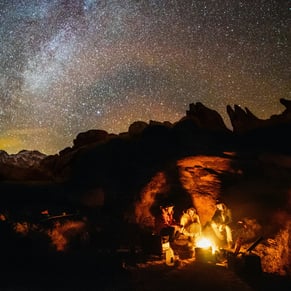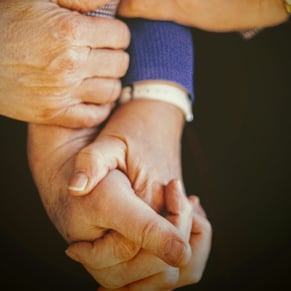Meaning
Some believe the road to meaning comes through a sense of belonging and a sense of purpose. Others find meaning through faith, symbols that represent the shared values and ideology of a group, or the pursuit of knowledge and understanding. Joseph Campbell wrote that: "The meaning of life is whatever you ascribe it to be. Being alive is the meaning." Where does true meaning lie? How can we find it, and what does it mean to assign meaning to our experiences and existence? Does meaning even exist objectively, or is it a purely subjective construct? Here, we wade into some of life's deepest questions, weigh what those questions ultimately reveal about ourselves, consider the nuance and complexity embedded within them, and probe the diverse perspectives that have shaped humanity's search for significance throughout history and across cultures. We explore the myriad ways individuals and societies have grappled with the enigma of meaning, and perhaps uncover insights to guide our own journeys.


Key themes
Guiding Questions
The human need for significance and legacy
The role of passion, vocation, and contribution to society
Concepts of belonging, acceptance, shared experiences, and service to others
The role of faith, spirituality, and belief systems in providing meaning
How stories, myths, and cultural narratives shape our understanding of meaning
The concept of meaning-making through learning and discovery
The perspectives of nihilism, absurdism, and the search for meaning in a seemingly meaningless universe
The impact of globalization, diversity, and cross-cultural exchange on meaning-making
How do different philosophical perspectives, such as nihilism and existentialism, shape individuals' search for meaning and purpose?
What role does a sense of belonging and community play in fostering individual well-being and fulfillment?
How can active listening deepen our understanding of others' perspectives, enriching our own sense of meaning and connection?
In what ways can continuous learning and intellectual growth contribute to finding meaning and purpose in life?
How can individuals find fulfillment in their work, passions, and daily lives? What factors contribute to a sense of satisfaction and self-actualization?
What role do faith, spirituality, and religious belief systems play in providing meaning and a sense of purpose for individuals and communities?
How can the power of storytelling, myths, and cultural narratives help us understand the human experience and our place in the world?
How do we cope with feelings of emptiness, alienation, and the existential crisis of meaninglessness? What roles do resilience and coping mechanisms play?
How do cultural traditions, values, and worldviews shape our understanding of meaning? How does the interplay of personal and collective identities influence our meaning-making processes?
As societies become increasingly globalized and diverse, how are concepts of meaning evolving? What can we learn from cross-cultural perspectives and exchanges?
What insights can the creative arts, literature, and artistic expression offer into the human experience and our search for meaning and significance?









